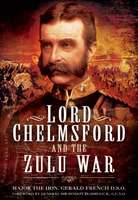Victory on the Western Front (Hardback)
The Development of the British Army 1914-1918
Imprint: Pen & Sword Military
Pages: 238
Illustrations: 20
ISBN: 9781783400652
Published: 18th October 2016
(click here for international delivery rates)
Order within the next 4 hours, 50 minutes to get your order processed the next working day!
Need a currency converter? Check XE.com for live rates
| Other formats available - Buy the Hardback and get the eBook for free! | Price |
|---|---|
| Victory on the Western Front eBook (4.5 MB) Add to Basket | £6.99 |
Marshal Foch, the Generalissimo of the Allied Armies during the last stages of the First World War, commenting on the victories won during the Hundred Days when the Germans were driven back on the Western Front, said ‘Never at any time in history has the British army achieved greater results in attack than in this unbroken offensive’.
The scale, speed and success of this offensive have provided historians with fertile ground for interpretation and debate. How did the British Expeditionary Force, having endured the bitter disappointments and heavy losses at Aubers Ridge, Loos, the Somme, Passchendaele, Cambrai and during the German spring offensives of 1918 turn the tide of the war and comprehensively defeat the enemy in the field? This is the fascinating question that Michael Senior tackles in this lucid and thought-provoking study.
He considers the reasons for the stunning British victories and examines the factors that underpinned the eventual success of the BEF. In particular he shows how tactical and technical developments evolved during the course of the war and merged in a way that gave the British a decisive advantage during the final months of the fighting.
Innovations in guns and gunnery, in shells, aircraft and tanks, and a massive increase in industrial output, played key parts, as did the continuous process of adaptation, experimentation and invention that went on throughout the war years. The result was an army that could take advantage of the unprecedented opportunity presented by the failure of the German spring offensive of 1918.
Michael Senior provides a challenging and controversial analysis of the underlying reasons for the success of the BEF. It is essential reading for anyone who is keen to learn about the extraordinary development of the British army throughout the war – and to understand why, and how, the Germans were beaten.
Victory on the Western Front contains a valuable timeline of the First World War, meticulous references and bibliography. It is a succinct, highly readable account of the foundations that underpinned the British Army's greatest ever victory in 1918.
Stand To! Western Front Assc No.111
Ultimately, Victory on the Western Front is a convincing antidote against the popular "Lions led by Donkeys" attitude toward the Great War that has sometimes been in vogue. It's a well-written and well-organized book of seven chapters, introduction and conclusion, notes, bibliography, index, and an appendix listing the main events of the war. The seven maps at the front of the book are clear and will be useful to some readers. Four pages of "plates" contain 24 black-and-white photos of significant people and scenes.
Roads To The Great War Blog
All in all, this book is an excellent read for those whose WWI interests include the workings of the British Expeditionary Force from 1914 to 1918.
Read the complete review here.
Victory on the Western Front is both an enjoyable read and a useful starting point for anyone new to the subject looking for an overview and pointers to further reading.
Stand To! Western Front Assc No.110
Recommended to all readers interested in the evolution of the British army during the war.
VaeVictis, March-April 2017
How did the British Expeditionary Force, having endured the bitter disappointments and heavy losses at Aubers Ridge, Loos, the Somme, Passchendaele, Cambrai and during the German spring offensives of 1918, turn the tide of the war and comprehensively defeat the enemy in the field? This is the fascinating question that Michael Senior tackles in this lucid and
The Armourer, February 2017
thought-provoking study.
Senior’s conclusion that the development of the British Army was “less of a learning curve and more of an uneasy continuum” does not lessen the positive impact of a fascinating narrative that enumerates the transformation of the British Army during the 1914-18 period with authority and style. In this reviewers opinion the author has produced a succinct and highly readable account of the foundations that underpinned the British Army’s greatest ever victory in 1918.
The Western Front Association, Phil Curme
Read the full review here.
As featured on The Long Long Trail.
The Long Long Trail
A great book which provides a comprehensive overview of the progression of warfare on the Western Front. It is lucid, very readable, and gets straight to the point, something that cannot be said of many other books that can often become too technical. This is also an important reference book which can be picked up again and again.
Jon Sandison, Freelance
Michael Senior refers to victory on the Western Front, but this was a conflict that saw millions dead and with very little to show for it. The gradual and eventual supremacy of the British Expeditionary Force came at such a great personal cost for so many families... Michael's book is a fitting tribute to all that died.
Books Monthly, December 2017 – reviewed by Paul Norman
About Dr Michael Senior
Dr Michael Senior has had a life-long interest in the First World War and, since his retirement, he has devoted much of his time to research, lecturing and writing about aspects of the Western Front. He has had articles published by the Western Front Association of which he is a member. His books include Fromelles 1916, Haking: A Dutiful Soldier, Victory on the Western Front: The Development of the British Army 1914-1918 and The Soldiers’ Peace: Demobilizing the British Army 1919.


















